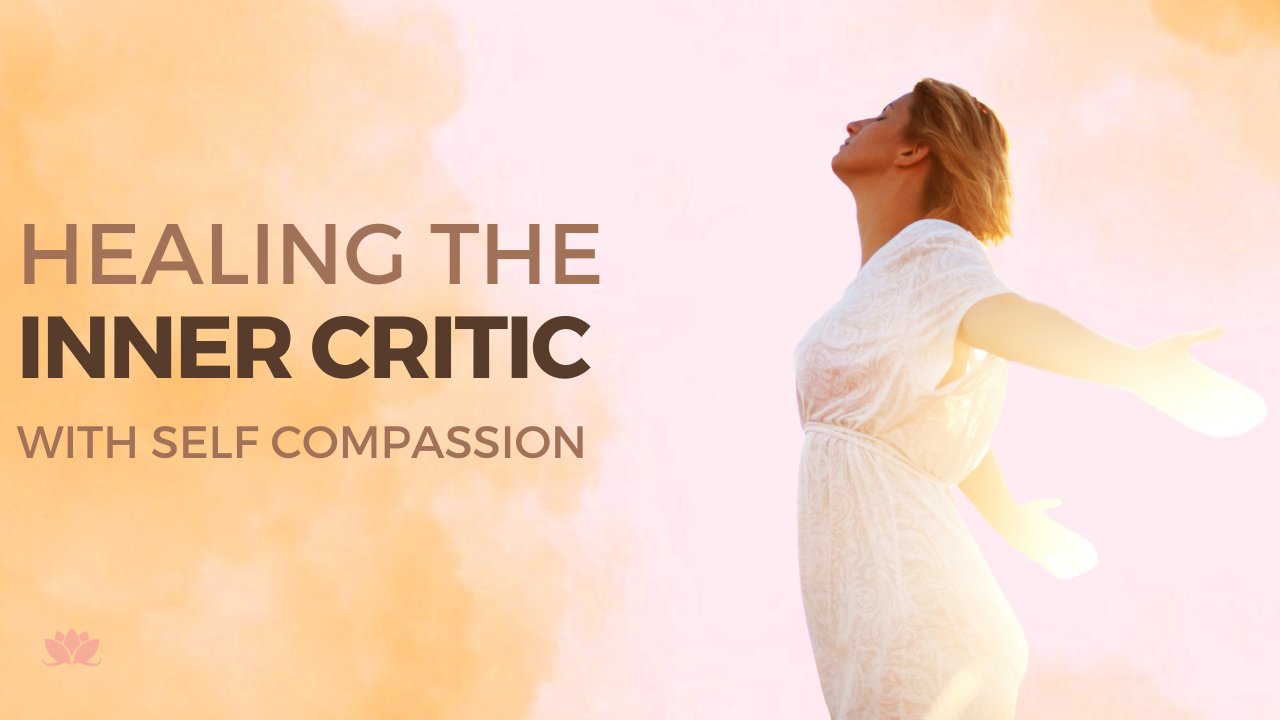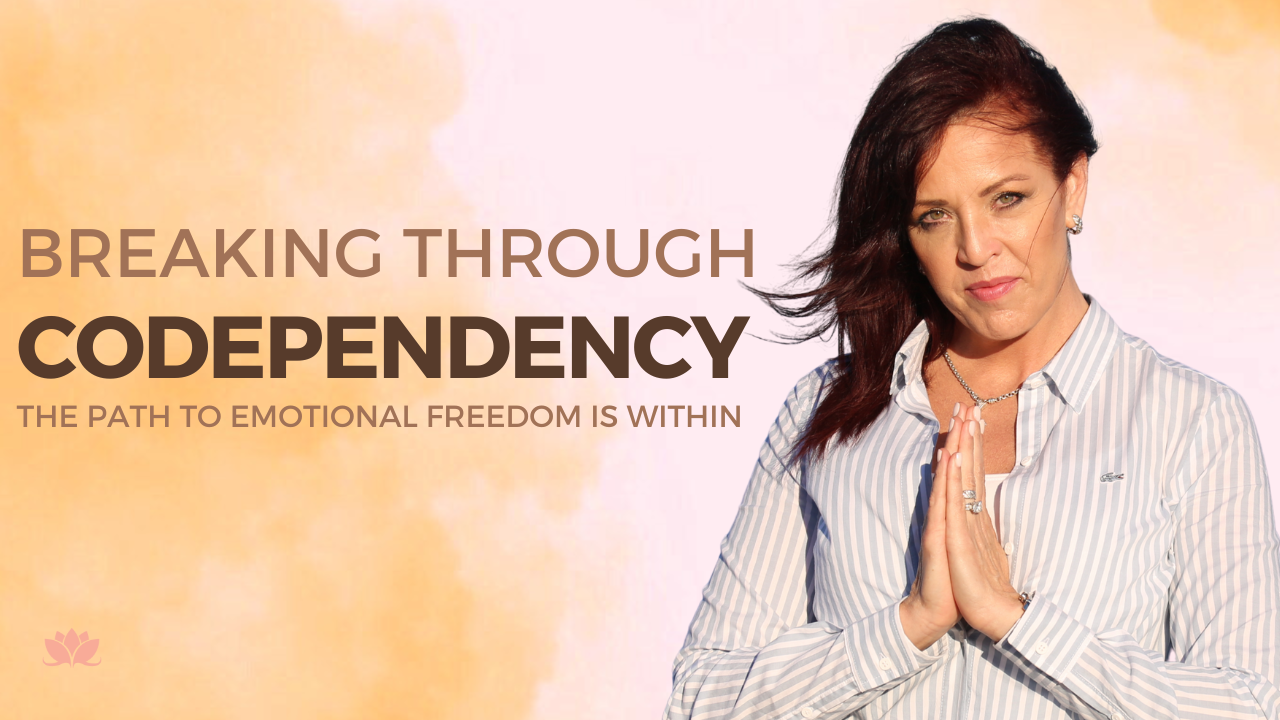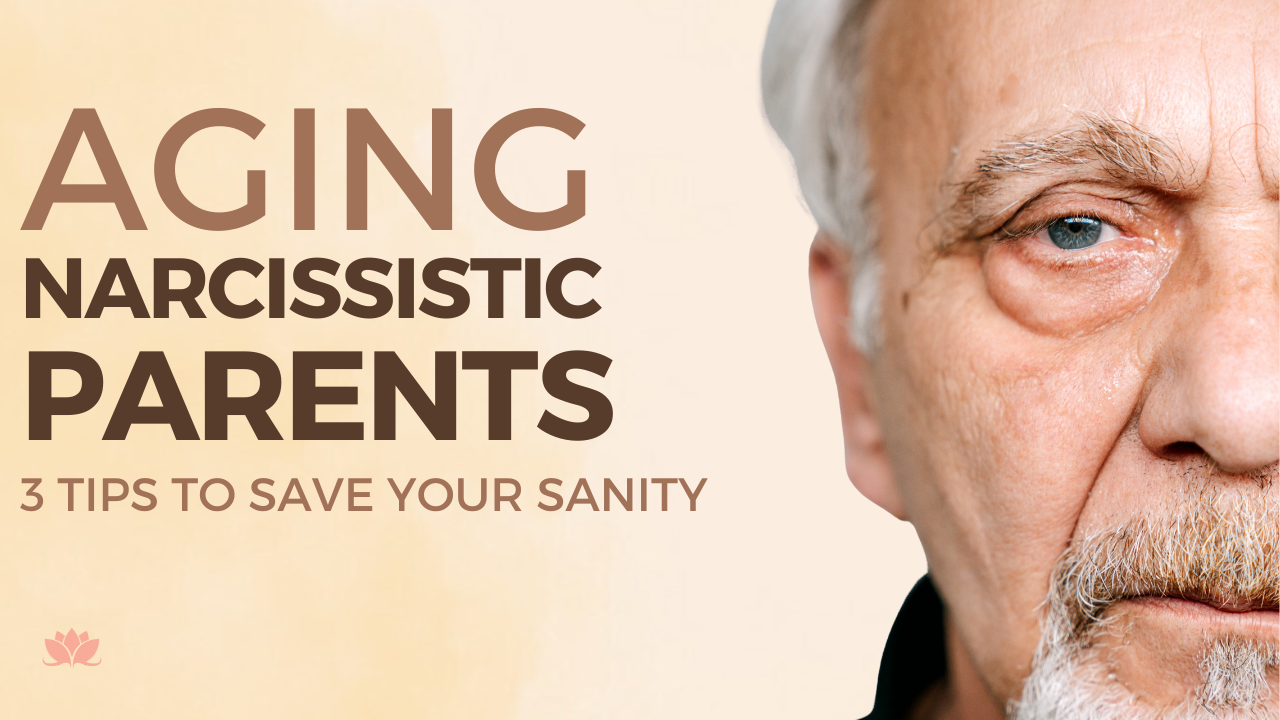Childhood Trauma Changes How You See the World
Childhood emotional neglect and abandonment create a wounded inner child. Unresolved wounds of the past, are the root causes of codependency. Break the chains of the past, and you can unleash the unlimited potential within. Meditation is a tool that can help you heal your inner child.


Childhood trauma happens outside of us, but it changes us on the inside, and we can often become arrested in a state of survival, unaware of how our hyper state of awareness is inhibiting the life we could be living.
This is not our fault; however, without a clear understanding of how experiencing childhood trauma impacts our inner world, our inner child can become arrested in a state of survival, unaware of the potential to live a life of purpose, peace, and calm.
When you experience things like emotional neglect, it is natural to focus on the person, or experience that has caused you to feel shame and not good enough. It is natural to want to focus on the painful stimuli, for the purpose of finding some way to avoid this pain in the future.
But this can keep us stuck for a lifetime, unaware we are unaware.
As children, when we are in pain it is natural to focus on the cause of our hurt and how the events have made us feel.
- Some external experiences (outside of us–our field of perception) cause us pain (abandonment, rejection, abuse, neglect)
- This external experience changes us emotionally on the inside (chemistry, physiology, thoughts, emotions)
As a result, two things are happening we must be aware of…an external experience has impacted us internally.
Why is this important?
When the human mind learns to associate a threat/pain with an outside event, person, circumstance, or experience, there is an internal response. Our minds and eyes fixate externally, and internally we can become hyperaware of how we feel. Mentally we notice anxious feelings, sadness, anger, fear, agitation, distrust, resentment, suspiciousness, grief, or worry.
And we can compound these painful internal experiences by judging ourselves for why we feel what we do.
Without a tool, or skill to exit this loop, sadly, many of us mentally deteriorate over time, and it does not have to be that way.
The Nervous System is Doing Its Job
When experiencing a painful event, such as emotional abandonment, or some form of neglect or abuse, the nervous system becomes activated into a state of hyperarousal and our bodies mirror the changes that are taking place at a chemical level, which has been induced by our point of focus, and natural stress responses to painful experiences.
In essence, our focus and our entire being have been hijacked.
As wounded adult children, in order to heal, we must get out of this natural loop that became impregnated into our subconscious minds, when we were defenseless and powerless to control what was happening in our world when we were children.
The Subconscious Loop
- Focusing on what hurt us on the outside, the person, or situation
- Focusing on how the experience made us feel
This loop narrows our focus and triggers our stress response system, which automatically and by default causes our pupils to dilate which in turn narrows our field of perception, in essence, causing us to be unable to see or pay attention to anything other than what has caused us pain.
- This alters our perception of others and ourselves.
- We can perceive others as predators and ourselves as prey/victims.
- We can perceive threats when they are not there.
- We can project our internal experiences upon others.
- We can hijack our happiness by way of a narrowed perceptual field.
- We can live in a state of survival, rather than expand our field of perception and perceive ourselves as the heroes of our own story.
This is not our fault.
These are natural consequences of a heightened stress response caused by emotional neglect, emotional abandonment, and abuse we could not escape.
Painful experiences activate our nervous system. Unresolved childhood trauma can impact our view of ourselves and the world, resulting in stress on our internal systems. Childhood trauma can make it impossible for a child to feel safe. If unhealed wounds go unresolved, we repeat what has been left undone. There is a constant stress we all live with, although we can remain subconscious and unaware of the root of our relationship problems, anxiety, depression, and dissatisfaction with life.
Unhealed wounds result in stress, and stress is tied to how we perceive what is happening around us. It is also tied to how we behave, act, think, and speak.
- Stress inhibits well-being.
- Stress also causes us to focus on what has hurt us.
- This means our perception of the world becomes limited.
- Childhood trauma causes us to constrict, live in fear, and inhibits our ability to believe in good, and abundant possibilities.
How we feel, and what we focus on impacts our path in life, the decisions we make and don’t make, and the things we say and don’t say.
Neuroscience teaches us that stress causes the pupil to dilate creating a sort of tunnel vision experience. This may be the reason why a codependent woman, in a room full of 1000 men, will pick the one who most matches her narcissistic father's energy.
What we focus on, consciously or subconsciously, tends to be what we experience in the 3D world.
As it is below so shall it be above.
What happens in childhood, gets rooted in our subconscious mind and that is not our fault.
For this reason, we must awaken, and heal what has been left unresolved in childhood.
When we are relaxed and not in a state of panic, the pupil of the eye constricts. This allows for a greater field of perception. Finding ways to trick our body into states of calm, increases our chances of interrupting the patterns responsible for keeping us locked within subconscious stress loops.
In essence, at a cellular level, childhood neglect, and trauma can keep us stuck in loops of heightened states of arousal, expecting the worst, in an attempt to avoid potential threats in the future, and while this makes sense, there is a better way to live, despite painful past experiences, if we are willing to open our minds to this possibility.
The Good News
Joe Dispenza has said that mental rehearsal changes the brain, emotions, and even gene expression. By mentally rehearsing a reality that has yet to take place, we can trick the body and the mind into believing we are in a state desired. We can literally change our body's physiology and with enough practice, we can break through the chains of the past.
Meditation is a free tool anyone can use to help bring their body back into a state of calm. Meditating often, can interrupt negative patterns of thoughts, and negative loops of thinking, and help our nervous system slip out of a state of arousal and into a calm state.
Tricking the Body and the Mind
We can rely on meditation to help us trick the brain and body into thinking and feeling as if the state we desire is now. With enough practice and a healthy dose of faith in neuroscience, it is possible to change how you feel on the inside, before a physical event takes place on the outside, you associate with joy or happiness.
Most people wait for something good to happen before they allow themselves to feel good feelings. And while that makes sense to the human ego, it is a false premise that keeps many adult children stuck in painful patterns of the past.
YouTube Meditation Playlist
Meditation was a tool I used to help me pattern interrupt negative loops within my mind as I approached the inner child healing journey, and set out to eradicate the root causes of codependency in my life.
In my flagship programs, The 12 Week Breakthrough Coaching Program, Master Your Reality Master Class, and the Loving the Self Video and Meditation Program, I create specific meditations for each lesson to help interrupt and dissolve negative subconscious loops and patterns that are essentially programs that control our lives outside our conscious awareness.
Here is a link to my free YouTube Mediation Playlist, to get you started on your inner child healing and recovery journey.
Dear One, if you’re codependent, that means your inner child doesn’t know they’re enough.
Born and raised in Queens, New York, Lisa started to educate others on how to stop reenacting self-sabotaging beliefs responsible for toxic relationship dynamics, after a life-changing divorce. Today, she is a highly sought-after expert for victims of Narcissistic Abuse, Adult Children of Alcoholics, and Recovering Approval Addicts, aka Codependents.
What makes Lisa a leading ‘Breakthrough’ Life Coach is her ability to help people recover from traumatic childhood experiences. Her work is founded upon breakthrough research in neuroscience and blends the art of self philosophy to satisfy the mind, body, and soul of the goal-driven individual who is motivated by a desire for personal excellence, in spite of any past experiences.
To learn more, visit https://www.lisaaromano.com



